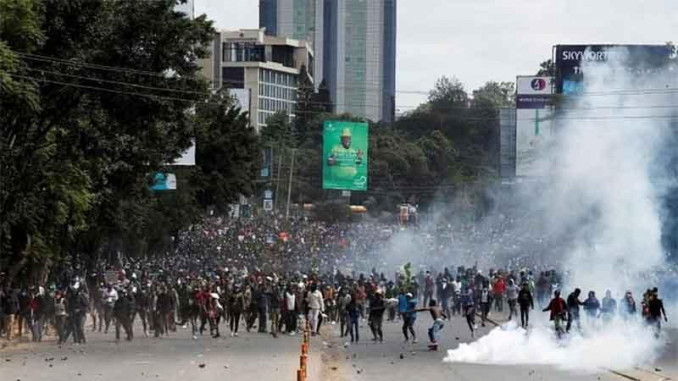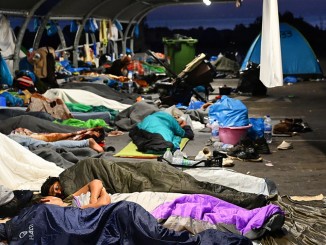
The mainstream press in the United States and around the world tends to treat politics and political movements as if they are somehow disconnected from the material conditions in which people live. Often, the causes for political conflict are attributed to religion, or cultural conflict, or so-called values. But a recent article in the New York Times called attention to what is more often the reality: political crises or upsurges by large numbers of people are often driven by economic crises, declining standards of living, and lack of access to basic necessities. In other words, the material conditions of life.
In the article from early July, entitled Political Unrest Worldwide is Fueled by High Prices and Huge Debts, the journalists and the paper’s editors go through a listing of major political crises in recent months, all of which have been directly driven by economic crises. In Kenya, hundreds of thousands have protested against a tax increase that would have increased prices for already hard to afford staple foods. In Pakistan, tax increases and high prices for flour and electricity have also triggered protests and waves of business shutdowns. Two years ago in Sri Lanka, shortages of fuel and food, skyrocketing prices, and increases in outright hunger led to a massive upsurge that pushed out of power the decades-old ruling family. In recent weeks, amidst years of massive inequality and worker exploitation, Bangladesh has seen massive and assertive protests by students and youth, demanding an end to decades-old quotas that reserved many government jobs for families of military veterans from the 1971 war with Pakistan. In Argentina, decades of economic crises, marked by rampant inflation and austerity, have caused decades of massive protests, and now the election of a right-wing so-called “anarcho”-capitalist politician who promises even worse pain for workers.
All of the nations mentioned above are deeply in debt, mostly to the International Monetary Fund but also to a host of other national and private investors. Most of the tax increases are proposed specifically to help pay down that debt, as well as to construct projects that are supposed to help the economy, but usually only benefit a few corporate interests. These tax increases directly hurt the poor. So does inflation. So do shortages of household necessities. It is under these conditions that mass upsurges generally occur.
Because the traditional parties have implemented capitalist policies exploiting their populations for decades, many poor and working people have, tragically, turned to right-wing demagogues like Jair Bolsonaro in Brazil, Narendra Modi in India, Javier Milei in Argentina, or Marine Le Pen in France, all of whom support more or less the same capitalist policies, but turn the attention of the masses by blaming immigrants, or elites, or other nations for their problems. Similarly, in the United States, the regular suffering of capitalist exploitation and inequality under both Democrats and Republicans has worsened in recent years with inflation, stagnant job and wage growth, and ever-growing inequality, tragically pushing many working people to support demagogues like Trump and Vance, who say they want to help workers even as they prepare make it harder for workers to organize and easier for capitalists to increase their wealth even further.
The Times article is notable for calling attention to the direct role of the economy in driving political upsurges. But it stops short of going the next logical step and discussing the roots of these interconnected economic crisis: the capitalist political-economic system itself.
It is the capitalist system driven by profits for a few that drives this entire system of inequalities between nations, debt, constant price fluctuations, taxes and scarcity. When people see their standards of living declining and their life becoming a greater struggle than it already is, they begin to resist and demand something different. As long as the capitalist ruling class – no more than a few hundred thousand people worldwide – continues to manage the global economy for their own private benefit while billions feel the uncertainties in their lives increasing, there will continue to be mass upsurges and conflicts worldwide.




